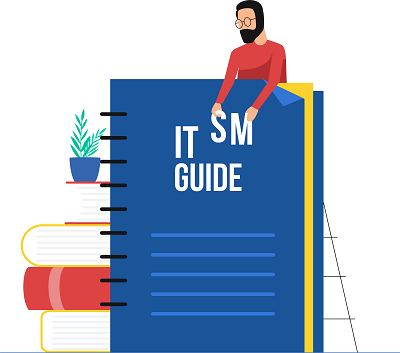Because of its popularity and relevance, getting an ITSM training is essential nowadays. Fortunately, there are various ITSM certifications available, whether you're a newbie looking to build up your skills or a professional who wants to bolster your existing knowledge. In this article, we will discuss one of the most common cross-platform ITSM certification - ITIL.
IT Service Management Certification
ITIL certifications are vendor-neutral and offer a flexible approach to the ITIL framework itself. It consists of a set of qualifications that concentrate on various aspects of ITIL best practice. This tiered arrangement makes it easy for candidates to choose their specific focus of discipline and key areas of interest. Within the ITIL 4 scheme, the certification levels are categorized as:
- Foundation
- ITIL 4 Managing Professional
- ITIL 4 Strategic Leader
- Master
1. ITIL Foundation
This serves as an introduction to ITIL 4, enabling candidates to view ITSM through an end-to-end operating model for the conception, delivery, and continual development of tech-enabled products and services.
This certification best fits those who need to gain a basic understanding of the ITIL framework, those who want to use ITIL to improve their ITSM, or those whose organizations have recently implemented ITIL and would like to have a general knowledge of it.
The components of this certification include the guiding principles of ITIL 4; the four dimensions of service management; Lean, Agile, and DevOps concepts and how they deliver business value; and how ITIL practices mentioned in ITIL 4 can uphold the value of the current processes.
2. ITIL 4 Managing Professional
This certification offers practical and technical knowledge regarding the process of running successful IT-enabled services, teams, and workflows. It encompasses core service management activities and keeps an eye on all types of engagement interaction between a service provider and their users, clients, vendors, and partners. It covers the following components:
- The delivery of innovative and reliable technology-assisted services to customers in a potent environment
- How to support IT-enabled products and services
- Tools that can improve satisfaction of stakeholders
- Be introduced to methodologies such as Agile and Lean, as well as technical practices and technologies like cloud, automation, and automatic testing
- Learn practical skills required to create an IT organization that continuously evolves
3. ITIL 4 Strategic Leader
The ITIL4 Strategic Leader certification has two modules: (1) ITIL 4 Strategist Direct Plan & Improve and (2) ITIL 4 Leader Digital & IT Strategy. Having this certification means that you have already gained a clear understanding of how IT influences and leads business strategy. It provides procedures for current and hopeful IT leaders to create and establish digital ideas that can address new technological challenges. This certification aims to:
- Impart practical and strategic elements on managing teams of different levels
- Enable digital business strategy to come hand in hand with IT strategy
- Understand how disruption from new technologies is affecting organizations
- How to respond to advances in technology
4. ITIL Master Certificate
The ITIL Master certificate verifies a candidate's ability to apply ITIL concepts, practices, and techniques in a professional setting.
To earn the ITIL Master certification, candidates should be able to demonstrate and justify how they have personally chosen and applied a variety of ITIL Framework expertise, concepts, and processes, as well as supporting management techniques to achieve the business outcomes they desire.
Why is it important to get an ITSM certification?
Here are the prominent benefits of having an ITIL certification:
Understanding ITIL Framework and Processes
Participants of ITIL certification programs can develop a deep understanding of ITSM activities that can be used to promote business excellence in IT enterprise environments.
Be In Sync with Global ITSM Standards
ITIL is compliant with a number of international quality requirements, including the ISO/IEC 20000 global standard for IT service management systems. Certified ITIL professionals can apply their expertise to a diverse range of businesses and sectors, including those in foreign countries, thanks to the global scope and compatibility of ITIL framework with other leading principles.

Certified Professionals Are Preferred By Employers
Studies reveal that employees with job-specific certifications are more confident, dependable, and knowledgeable; they become proficient in their positions faster after being hired; and they perform their tasks more effectively. These aspects illustrate why ITIL-certified professionals are desirable candidates for IT positions.
By implementing ITSM practices and getting ITSM certification, you can set up your company for success. Contact ITarian now to streamline your IT management approach.